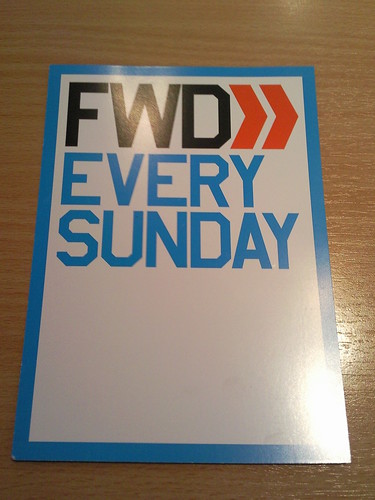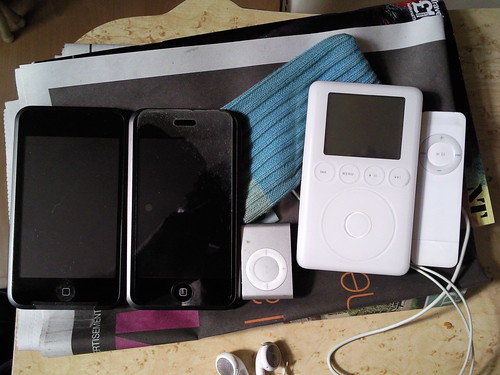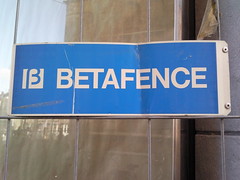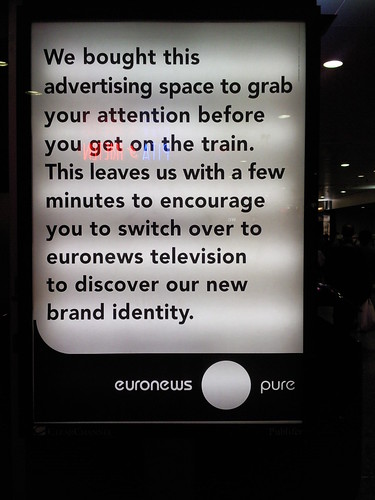Monkey at Media Guardian draws attention to Giles Coren's somewhat
intemperate email tirade to a sub regarding a minor change to one of his
reviews.
I pass no comment on the story itself, but the email, reproduced below, is worth reading as it has some good lessons on how to write. And lest we forget, he does have
a first in English. So mess with him at your peril.
Not sure why he ends it 'all the best' though, as the preceeding paras suggest anything but.
---
Chaps,
I am mightily pissed off. I have addressed this to Owen, Amanda and Ben because I don't know who i am supposed to be pissed off with (i'm assuming owen, but i filed to amanda and ben so it's only fair), and also to Tony, who wasn't here - if he had been I'm guessing it wouldn't have happened.
I don't really like people tinkering with my copy for the sake of tinkering. I do not enjoy the suggestion that you have a better ear or eye for how I want my words to read than I do. Owen, we discussed your turning three of my long sentences into six short ones in a single piece, and how that wasn't going to happen anymore, so I'm really hoping it wasn't you that fucked up my review on saturday.
It was the final sentence. Final sentences are very, very important. A piece builds to them, they are the little jingle that the reader takes with him into the weekend.
I wrote: "I can't think of a nicer place to sit this spring over a glass of rosé and watch the boys and girls in the street outside smiling gaily to each other, and wondering where to go for a nosh."
It appeared as: "I can't think of a nicer place to sit this spring over a glass of rosé and watch the boys and girls in the street outside smiling gaily to each other, and wondering where to go for nosh."
There is no length issue. This is someone thinking "I'll just remove this indefinite article because Coren is an illiterate cunt and i know best".
Well, you fucking don't.
This was shit, shit sub-editing for three reasons.
1) 'Nosh', as I'm sure you fluent Yiddish speakers know, is a noun formed from a bastardisation of the German 'naschen'. It is a verb, and can be construed into two distinct nouns. One, 'nosh', means simply 'food'. You have decided that this is what i meant and removed the 'a'. I am insulted enough that you think you have a better ear for English than me. But a better ear for Yiddish? I doubt it. Because the other noun, 'nosh' means "a session of eating" - in this sense you might think of its dual valency as being similar to that of 'scoff'. you can go for a scoff. or you can buy some scoff. the sentence you left me with is shit, and is not what i meant. Why would you change a sentnece aso that it meant something i didn't mean? I don't know, but you risk doing it every time you change something. And the way you avoid this kind of fuck up is by not changing a word of my copy without asking me, okay? it's easy. Not. A. Word. Ever.
2) I will now explain why your error is even more shit than it looks. You see, i was making a joke. I do that sometimes. I have set up the street as "sexually-charged". I have described the shenanigans across the road at G.A.Y.. I have used the word 'gaily' as a gentle nudge. And "looking for a nosh" has a secondary meaning of looking for a blowjob. Not specifically gay, for this is soho, and there are plenty of girls there who take money for noshing boys. "looking for nosh" does not have that ambiguity. the joke is gone. I only wrote that sodding paragraph to make that joke. And you've fucking stripped it out like a pissed Irish plasterer restoring a renaissance fresco and thinking jesus looks shit with a bear so plastering over it. You might as well have removed the whole paragraph. I mean, fucking christ, don't you read the copy?
3) And worst of all. Dumbest, deafest, shittest of all, you have removed the unstressed 'a' so that the stress that should have fallen on "nosh" is lost, and my piece ends on an unstressed syllable. When you're winding up a piece of prose, metre is crucial. Can't you hear? Can't you hear that it is wrong? It's not fucking rocket science. It's fucking pre-GCSE scansion. I have written 350 restaurant reviews for The Times and i have never ended on an unstressed syllable. Fuck. fuck, fuck, fuck.
I am sorry if this looks petty (last time i mailed a Times sub about the change of a single word i got in all sorts of trouble) but i care deeply about my work and i hate to have it fucked up by shit subbing. I have been away, you've been subbing joe and hugo and maybe they just file and fuck off and think "hey ho, it's tomorrow's fish and chips" - well, not me. I woke up at three in the morning on sunday and fucking lay there, furious, for two hours. weird, maybe. but that's how it is.
It strips me of all confidence in writing for the magazine. No exaggeration. i've got a review to write this morning and i really don't feel like doing it, for fear that some nuance is going to be removed from the final line, the pay-off, and i'm going to have another weekend ruined for me.
I've been writing for The Times for 15 years and i have never asked this before - i have never asked it of anyone i have written for - but I must insist, from now on, that i am sent a proof of every review i do, in pdf format, so i can check it for fuck-ups. and i must be sent it in good time in case changes are needed. It is the only way i can carry on in the job.
And, just out of interest, I'd like whoever made that change to email me and tell me why. Tell me the exact reasoning which led you to remove that word from my copy.
Right,
Sorry to go on. Anger, real steaming fucking anger can make a man verbose.
All the best
Giles
Labels: editorial sub editing giles coren times restaurant review indefinite article metre unstressed syllable























